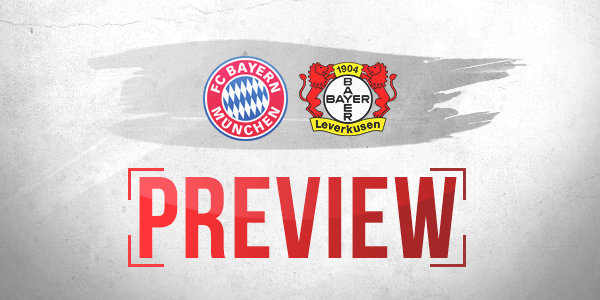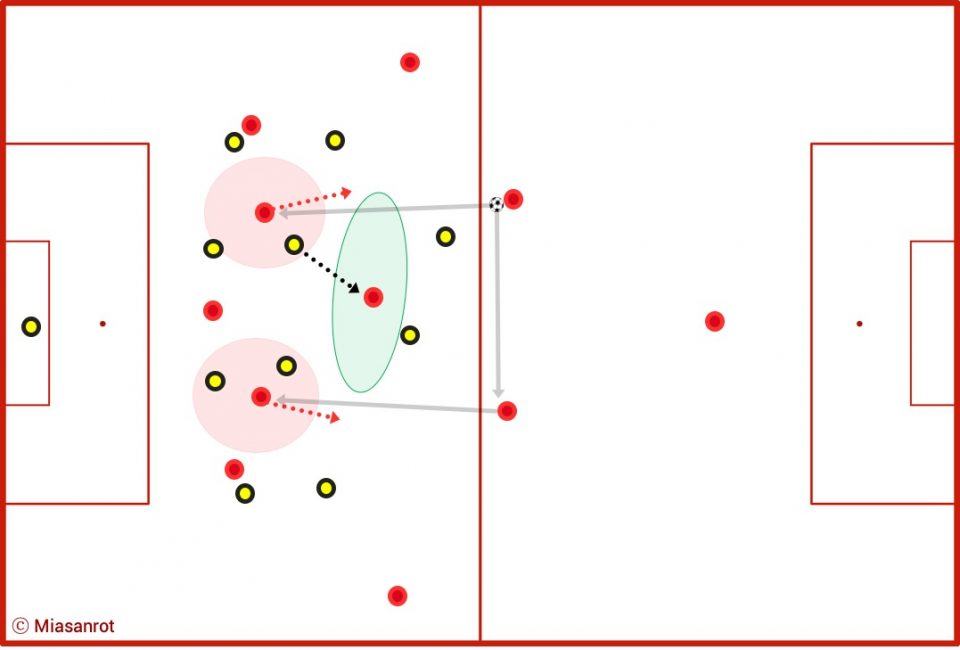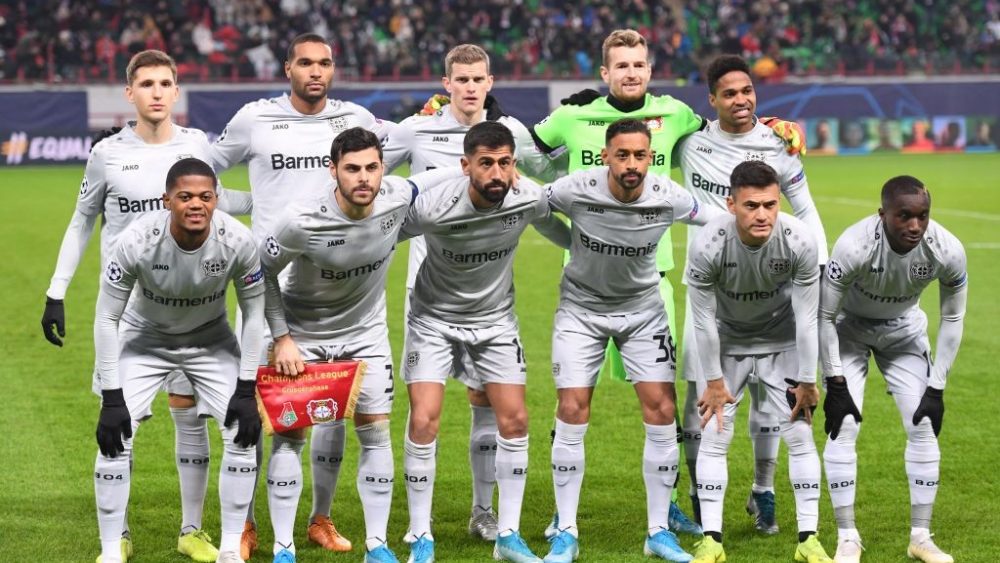Bundesliga MD 13 preview: Bayern against Bayer
If you want to understand Peter Bosz’s football, you just have to listen to him very carefully. The 56 year old likes to talk a lot. At least about football and his ideas about it. Football for him is “a bit like chess”, he said in March. Opponents would try to find solutions against his playing style, whereupon it would be important for him again to develop counter solutions for these solutions.
For Bosz, the solutions in soccer chess are sometimes so offensive in nature that his pieces almost attack the opponent with the knife between their teeth. If you ask him why he always chooses this style for his chess moves, even though he has not been very successful so far, a fascinating conversation can arise. One at eye level and certainly not one that ends in the monologue of a supposedly all-knowing coach. Because Bosz is much more flexible and open than his reputation suggests for his time in Dortmund.
Bosz gave a good example of his likeable and open-minded nature, as 11Freunde in August conducted an extensive interview with him. His argumentation as to why he still sticks to his almost crazy offensive playing style despite the lost European League final in 2017 and the roller coaster ride in Dortmund can be pointed to a simple thesis: Football is for the fans and they want to see spectacles.

Bayer 04 Leverkusen: Spectacle in the roller coaster
In the ideal case, according to Bosz, this spectacle should lead to success. Why this one failed to appear more often recently, he explains himself better than anyone else: “Of course I know that my path is basically a very difficult one, because if mistakes happen during offensive play, the team behind is immediately susceptible.”
And that is essentially the core of what Bosz has been working on since his arrival in Germany. Finding a balance between offense and defense without having to give up his offensive spectacle at the same time is the task he set himself on his way to the Bundesliga. He could certainly try it in other ways, but the belief in his philosophy is still strong:
Offensive football does not necessarily mean a higher risk, it only requires more detailed planning. If we are compact at the back and front, the distances become so short that we can react very quickly even if we lose a ball. And if I analyse the game correctly as a coach, it is also possible that my team will get fewer and fewer goals and score more goals at the same time. But it requires a clear plan and hard analytical work. And very attentive players.Peter Bosz, end of August in 11Freunde
Peter Bosz: More flexible than his reputation
With currently 1.72 points per game (39 games) he is in fourth place in the eternal coaching table (at least 10 games) at Bayer 04 Leverkusen behind Sascha Lewandowski (1.88 PPS), Jupp Heynckes (1.87 PPS) and Christoph Daum (1.77 PPS). But: Heiko Herrlich, who had a very mixed time in Leverkusen, is also in this position with 1.72 points.
Will Bosz shape an era with the Werkself, he will have to stabilize his system. At the beginning, the implementation of his idea looked decent. But with the loss of Julian Brandt at the latest, irregularities and mistakes crept in, which must now be corrected.
The control centre in the midfield is a decisive factor here. Contrary to the prejudices that have established themselves around Bosz, the coach is very keen to experiment with the arrangement of his players on the pitch. The aim is to find the best possible compactness for his strategically extreme offensive football.
Seeking midfield control
This means that Bosz will adjust the positional play of his team in detail until he is satisfied with the distances between the players. In the last “Rückrunde”, this was the case in 4-3-3 with Brandt and Kai Havertz on the half positions. With Brandt’s departure, Bosz had to go back to new experiments.
One of his experiments was the switch to a back three. However, this soon led to major problems. The idea of replacing Brandt in the centre with nominally one more player in the midfield centre never really worked out, because there was no good balance between the four midfielders. Either they took spaces away from each other, or they couldn’t play out situations in which they outnumbered their opponents.
Recently, a flexible 4-2-3-1 formation seemed to establish itself, which is quite similar to the 4-3-3 of last season. With Kerem Demirbay, Charles Aránguiz and Havertz, there is also a strong line-up for the central positions. But now Havertz has dropped out. Bosz will also have to find solutions here. However, the space utilization is a bit better than in the previous season, because the team moves forward flexibly from the six space. In possession of the ball, Bayer switches between a 2-1 and a 1-2 relay in midfield.
The balance is not correct yet
The counter-pressing also benefits as well. In Moscow, Leverkusen conquered the ball 69 times, against Freiburg 53 times (with 7% more possession) and in Wolfsburg even 74 times. Leverkusen is somewhat more stable, conceding only one goal in these three games. Although they still allowed relatively much with around one expected goal against per game, the progress cannot be denied. How much this is worth, however, the next weeks will show.
In contrast to Bayern, it should be decisive for Bosz that he finds ways to disturb the reinvigorated record champion early, but also efficiently. The double six plays an important role in this because it bears great responsibility for the balance of the entire team. And that still doesn’t fit despite the better performances of late.
The slightly better defensive performance so far has been at the expense of the offensive. With the exception of the Freiburg match, where Bayer created an extraordinarily large number of chances and missed them, this was more of a spasm than a spectacle. And nothing is more important than finding a good balance between offensive courage and defensive stability.
FC Bayern: What is the blitzstart worth under Flick?
This should become especially important in Munich. Hansi has patched up the positional game of Bayern. Shorter distances, more compactness, offensive power and at the same time defensive stability. What Bosz is working on at Leverkusen, Flick seems to have succeeded after only a few weeks – with better individual players of course.
A decisive tactical element, however, is the better integration of the middle of the field. Especially the eights are very flexible in Flick’s system. From a basic organization, which reminds a little of what Niko Kovač wanted to implement at the beginning of the season, come the appropriate running routes now.

The graphic indicates the improvements: First of all, the six (green area) now holds its position much more frequently. In the previous 4-4-2-Pressing of the four opponents, this led to a 3 vs. 2 majority for Bayern and a correspondingly uncomplicated build-up of the game. But this is also due to the fact that the eights now move in such a way that there is less pressure for the player with the ball in the six’s space.
They managed to tie the opponent’s sixes to themselves either by sprinting from lower positions to higher ones or vice versa and always giving them the feeling that they couldn’t push any further forward. Because they could open a possibility to get in between the lines. As a result, Joshua Kimmich (Tuesday Thiago) regularly got free and could even spin around without being directly confronted with an opponent.
Will Flick mix up some details?
Many tactics on the soccer chessboard, which can ultimately be reduced to an important insight: Under Flick Bayern tear holes between the defensive and offensive line of the opponent, which they then use with their strong number six. However, the previous four opponents were also very homogeneous in their approach. They all pressed in a 4-4-2 and they all acted more to protect than to attack. Bosz’s Leverkusen, unlike these four teams, will be attack high and aggressive.
For the first time, Flick’s team will have to make decisions under pressure when building up the game. Perhaps the eights won’t be able to tie the sixes of the Werkself as well, because they will push forward a bit more carelessly. All the more exciting will be two aspects from Flick’s perspective. First: Who plays in the midfield centre? Will the focus again be on taking the opponent by surprise through counter-pressing situations?
Thiago showed in the Champions League that he can also be very valuable against the ball. Maybe his performance was enough to keep the starting place. Then the question remains whether Kimmich rotates back to the right side or whether both start together in midfield. The other crucial aspect is the group tactics, but it goes hand in hand with the first: Does Flick adapt the game structure in order to counter the expected pressure? Kimmich on the six and Thiago as the eight on the half-left could be an option that would allow Flick’s team to override the opponent’s attack sprinting through the centre. But Goretzka, too, has proven that he is technically at least not dropping off and is also a great weapon for counter-pressing.
Who’s checkmating who?
If Bayern manage to prevent their opponents from attacking them through their runs against Leverkusen, the foundations for a dominant performance have already been laid. On the other hand, Bosz will want to prevent exactly that. If he finds ways to disrupt Bayern’s six space without opening the halfspaces to their eights, that’s a big step for Leverkusen.
The midfield decides games. In this duel, the Cruyff school’s motto should be particularly true. Especially since Peter Bosz is a coach on the side line who was very close to Johan Cruyff – human, but above all also philosophical about football.
For both coaches, the duel will be an important assessment of their position. Both Leverkusen and Bayern have been in good form lately. But how much such success is worth is often only apparent when a team is challenged at a very high level. And exactly this will happen on Saturday evening, when Peter Bosz and Hansi Flick challenge each other to a duel on the tactical chessboard.





